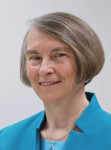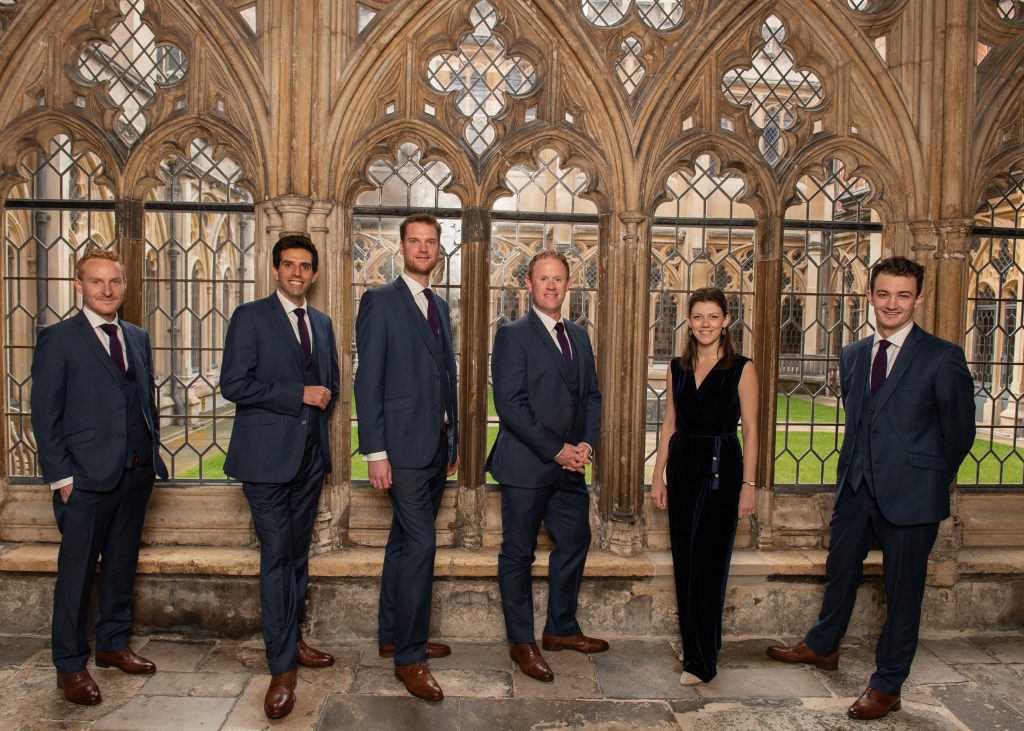The Queen’s Six Bring Royal Pedigree To Milwaukee Show
Group will open Early Music Now season on Saturday.
They sang at the wedding of Prince Harry and Meghan Markel. They’ve recorded an album of pop love songs. People magazine has written about them. And, after a 2018 concert in Milwaukee, they changed a flat tire for a member of the audience (Yes, this really happened).
They are The Queen’s Six, returning to Milwaukee on Saturday, Oct. 26, to open the Early Music Now season. The Six will sing an a cappella vocal program they call Stars and Their Spies: Music, Travel and Espionage in the Renaissance.
As members of the Lay Clerks at St. George’s Chapel at Windsor Castle, the two altos, two tenors, and two bass/baritones sing at daily liturgical services and perform for both private and state occasions. The singers live with their families within the Windsor Castle walls. But The Six are not exclusively royal musicians. They also perform individually with other world-class vocal ensembles and tour frequently as a group. Reviewers laud their “seamless blend and balance” (The Guardian) and their creation of “An intimacy born of long acquaintance with one another’s voices, and countless man-hours spent singing together, informs these Queen’s Six performances” (BBC Music Magazine)
Saturday’s program draws on a rich repertoire of sacred and secular vocal music written in the 15th and 16th centuries by 14 English composers and Italians whose madrigal writing influenced their English colleagues. The concert includes composers of the era who will be familiar to audiences of Early Music Now (Claudio Monteverdi, Thomas Morley, William Byrd). Though others may be less well known, their works beautifully illustrate the expressiveness and polyphony that characterize the Renaissance musical form.
Perhaps the most intriguing of the bunch are a father and son. Italian-born Alfonso Ferrabosco I is credited with bringing the madrigal form to England. He also is suspected of being a spy for England’s Queen Elizabeth I. Circumstantial evidence for that accusation includes his unusually generous salary as a court musician. Alfonso’s illegitimate son Ferrabosco II, who served Elizabeth’s court as a musician until his death, tried to make extra money by fining people who caused a nuisance on the River Thames.
Many of the English and Latin texts are settings drawn from Biblical sources, legends of the saints, and mythology. However, composer Thomas Weelkes (1576-1623) paired his own poetry with his music. In Thule, the period of cosmography-The Andalusian Merchant, he vividly compares the explosion of volcanoes at Hecla, Etna, and Pico do Fogo to his experience of love. “These things seem wondrous, yet more wondrous I, Whose heart with fear doth freeze, with love doth fry.”
“Wondrous” also applies to the skill and sensitivity displayed by The Queen’s Six as they transport listeners to the Elizabethan Age. They perform at 5 p.m. Saturday, Oct. 26, at St. Paul’s Episcopal Church, 914 E. Knapp St. Tickets are available online. A free pre-concert lecture begins at 4 p.m.

Existing members must be signed in to see the interactive map. Sign in.
If you think stories like this are important, become a member of Urban Milwaukee and help support real, independent journalism. Plus you get some cool added benefits.
Preview
-
A Sacred Choir, 70 Voices Strong
 Dec 14th, 2025 by Martha Brown
Dec 14th, 2025 by Martha Brown
-
Prometheus Trio Goes Bohemian
 Dec 3rd, 2025 by Martha Brown
Dec 3rd, 2025 by Martha Brown
-
Present Music Offers New Choral Works
 Nov 20th, 2025 by Michael Barndt
Nov 20th, 2025 by Michael Barndt






















